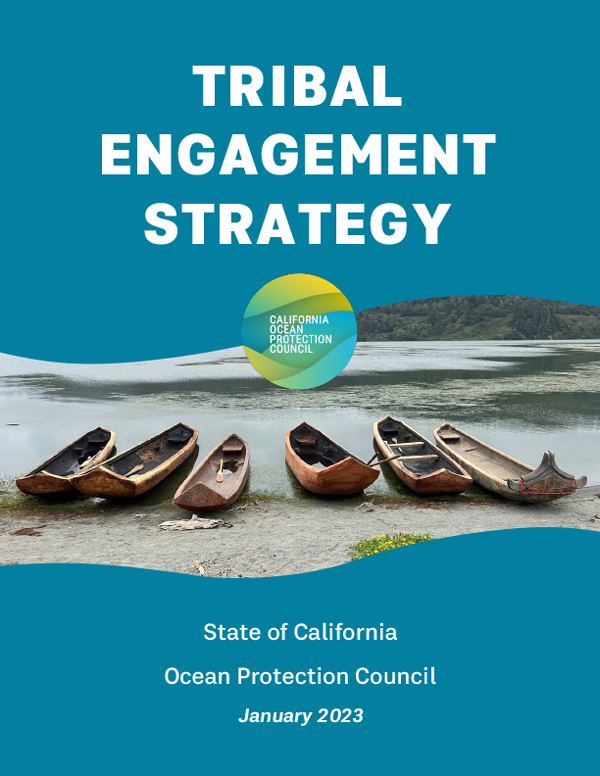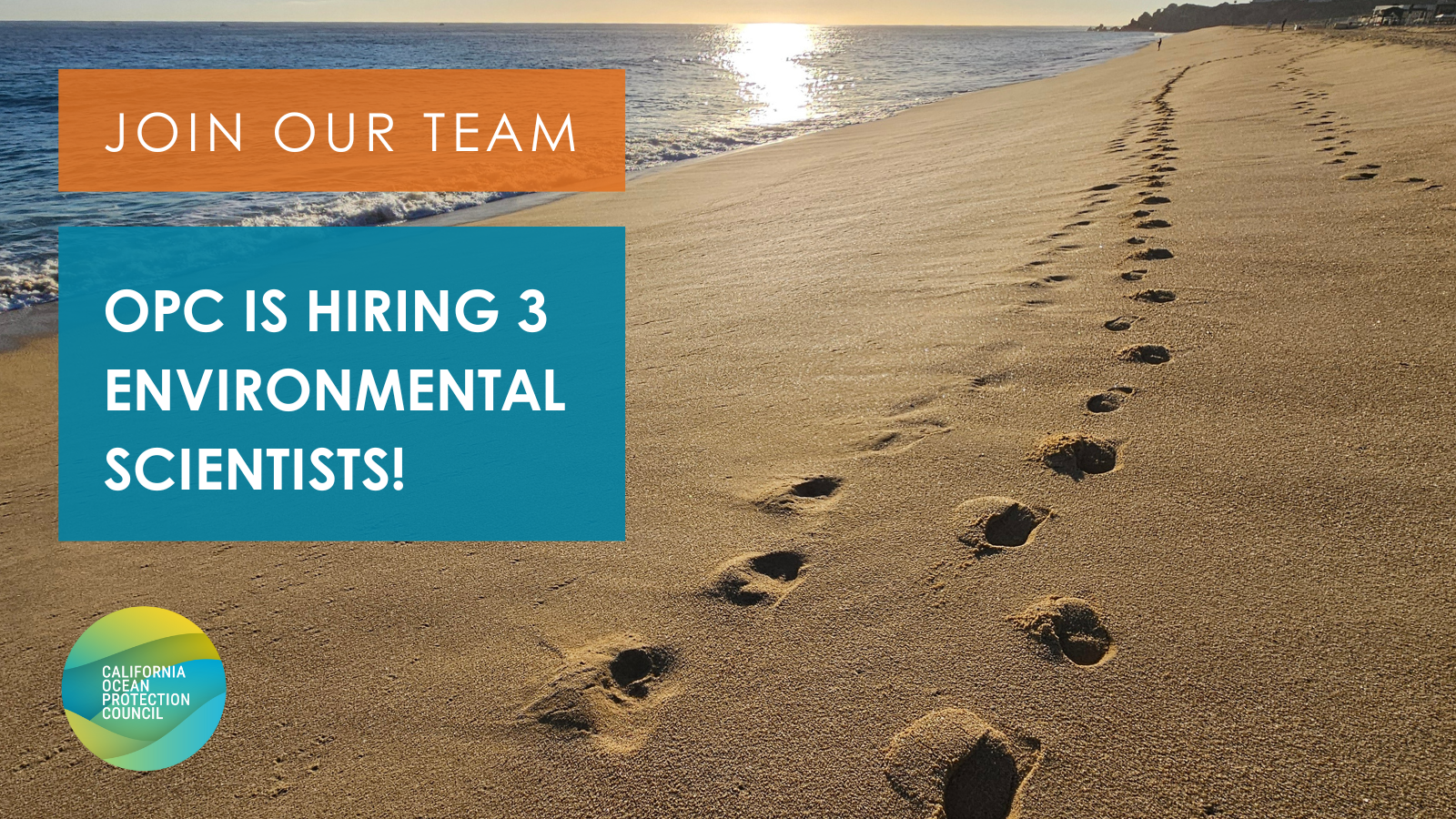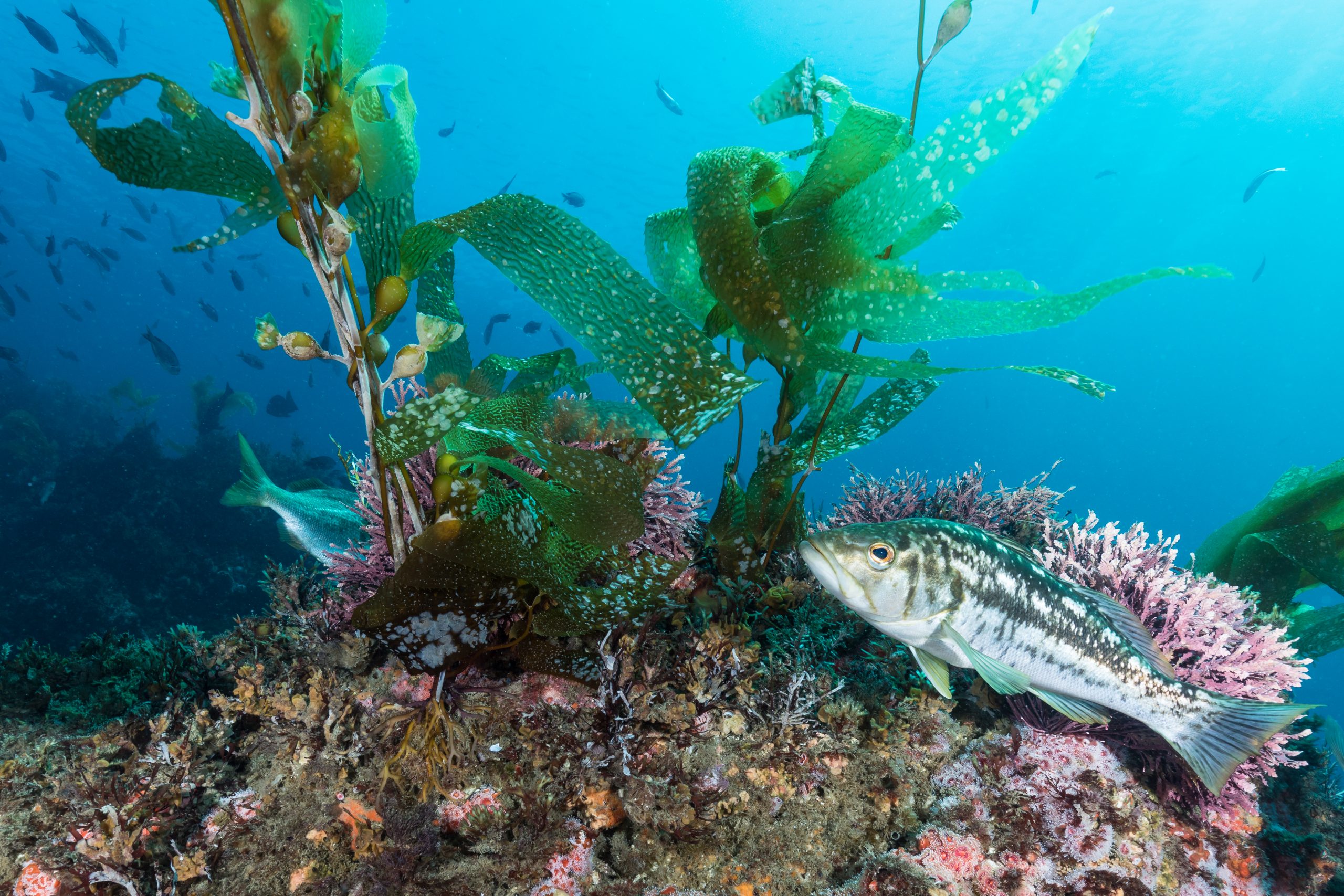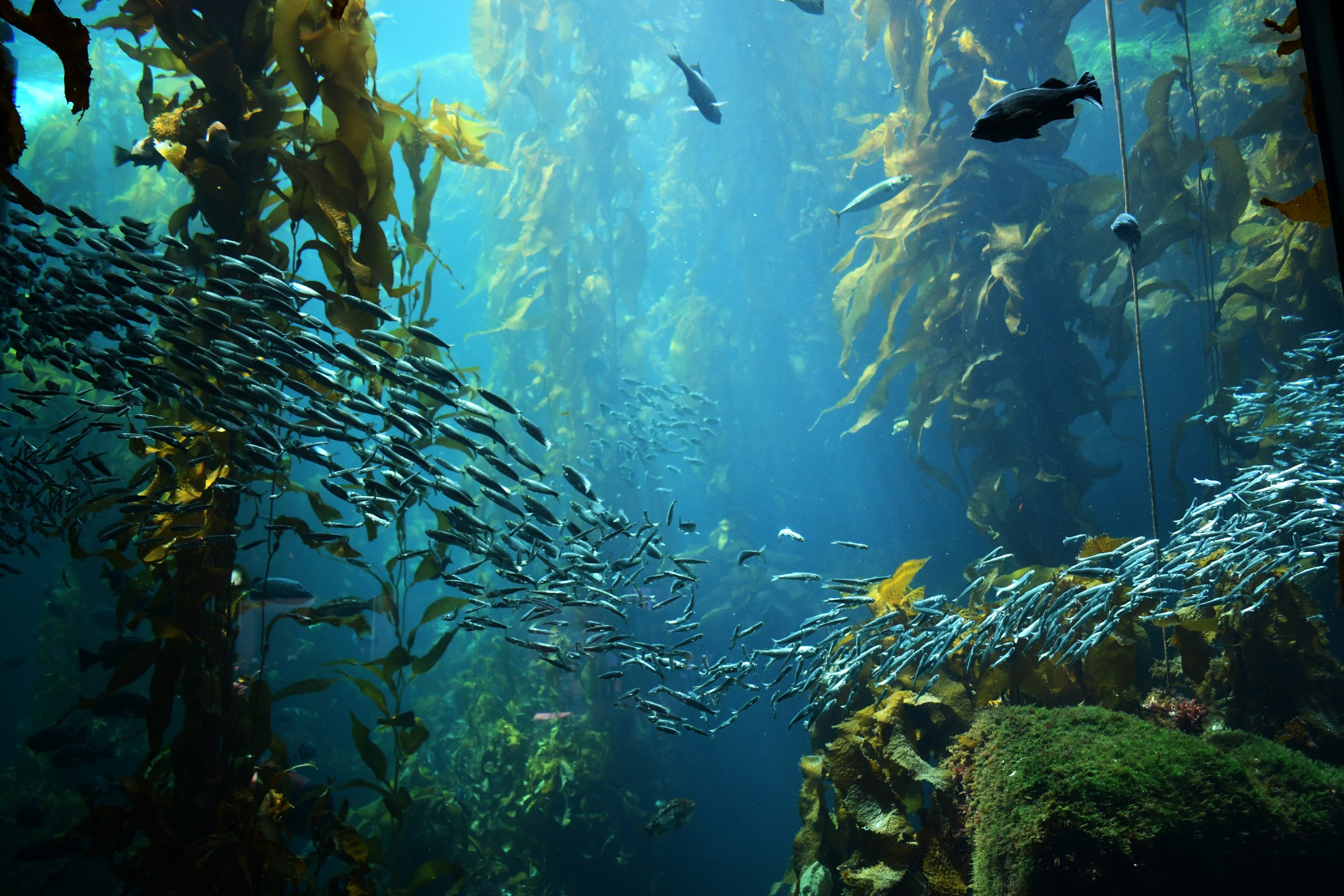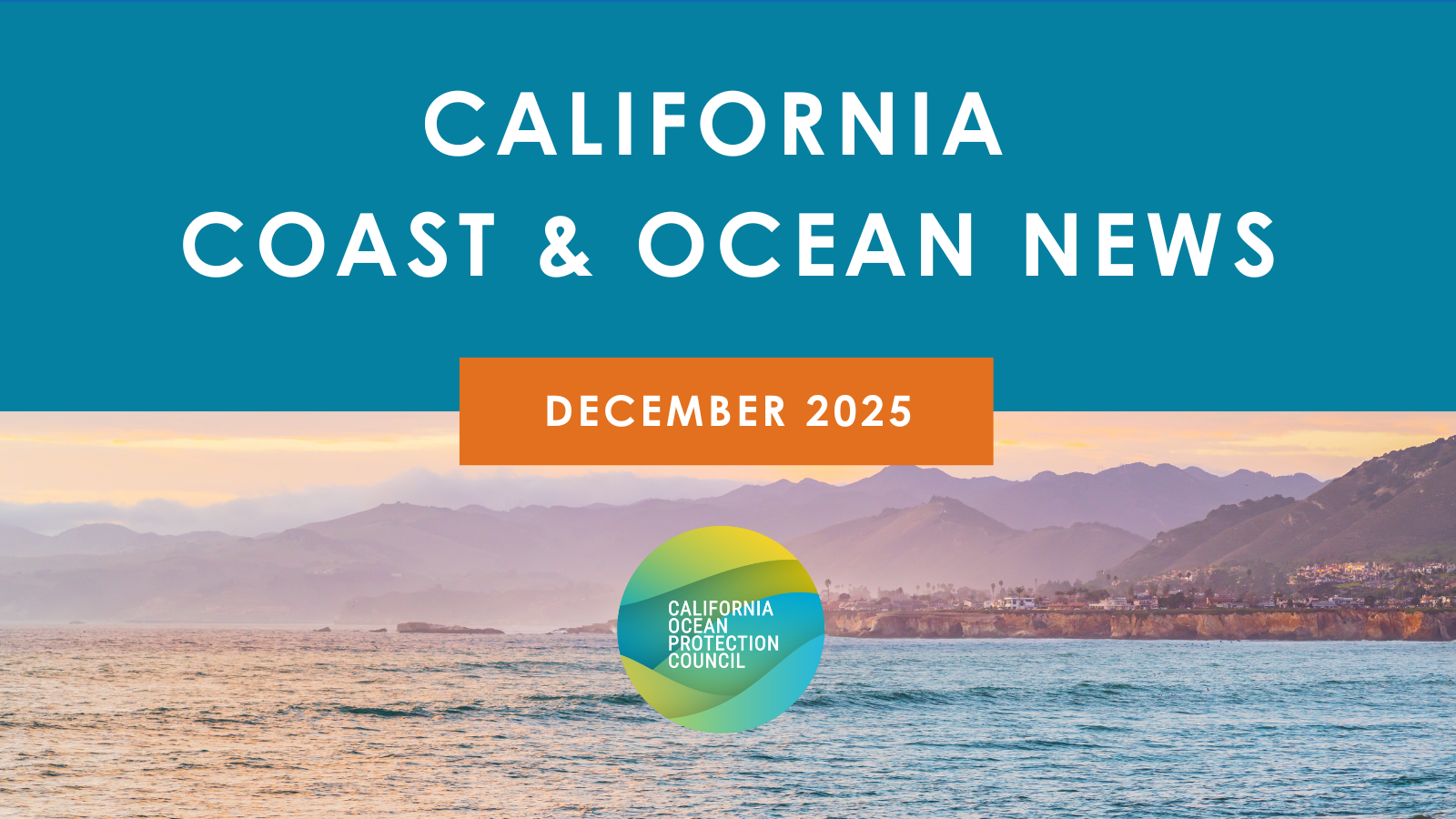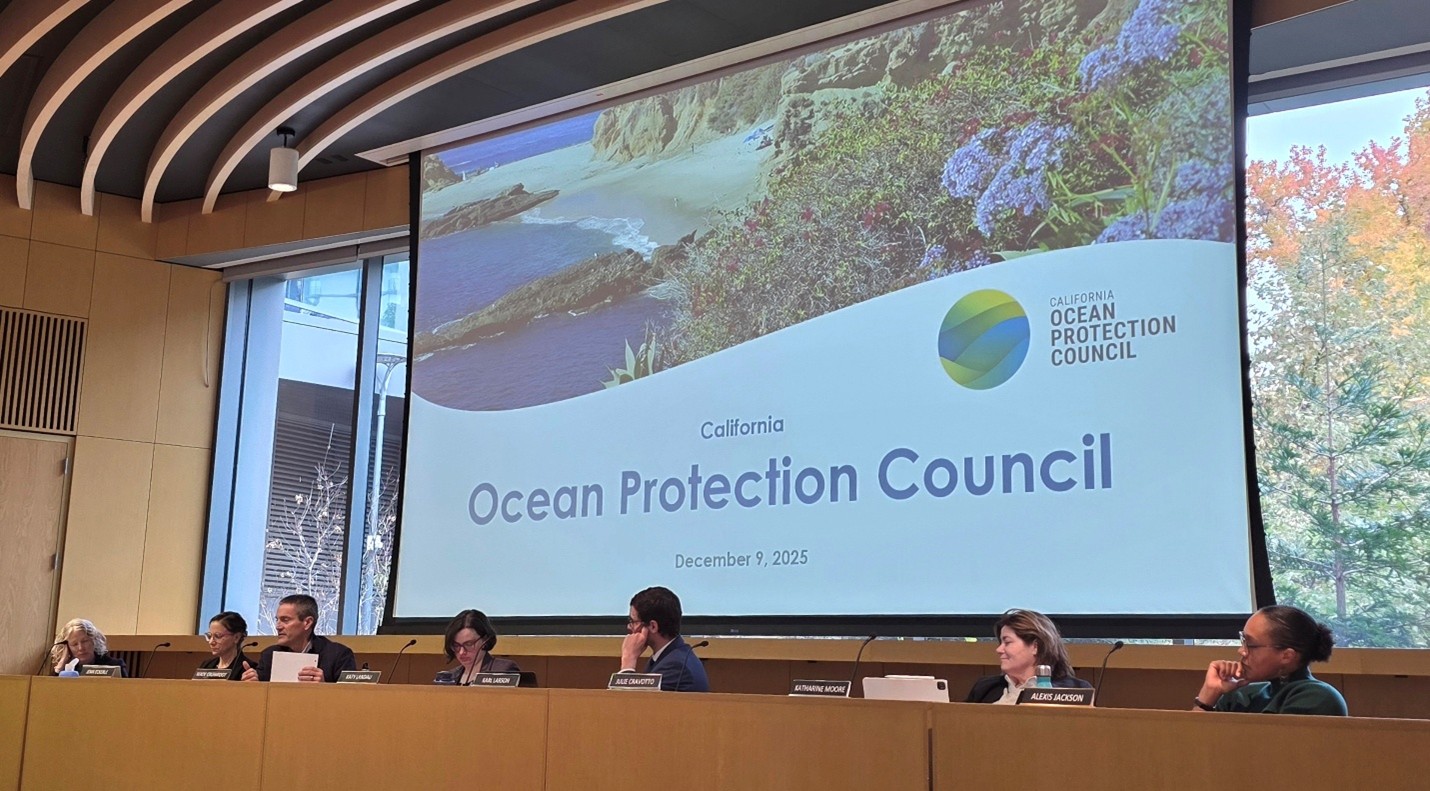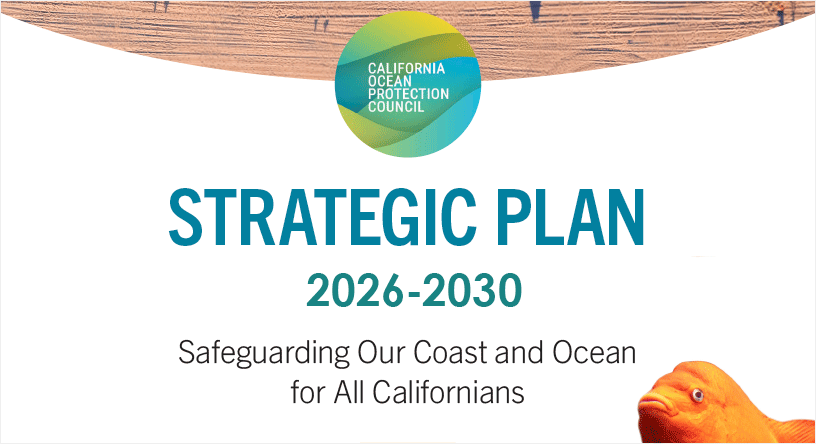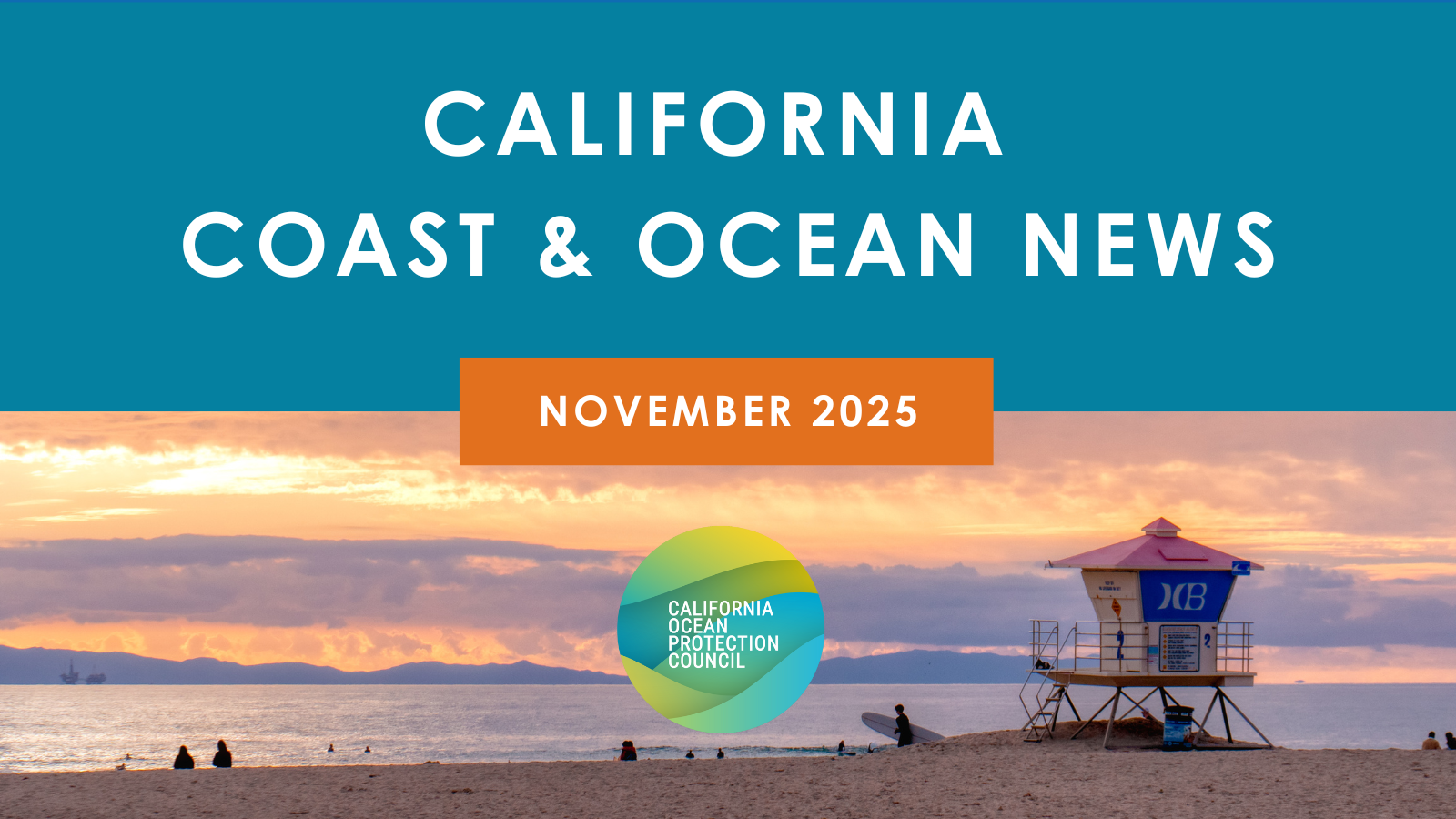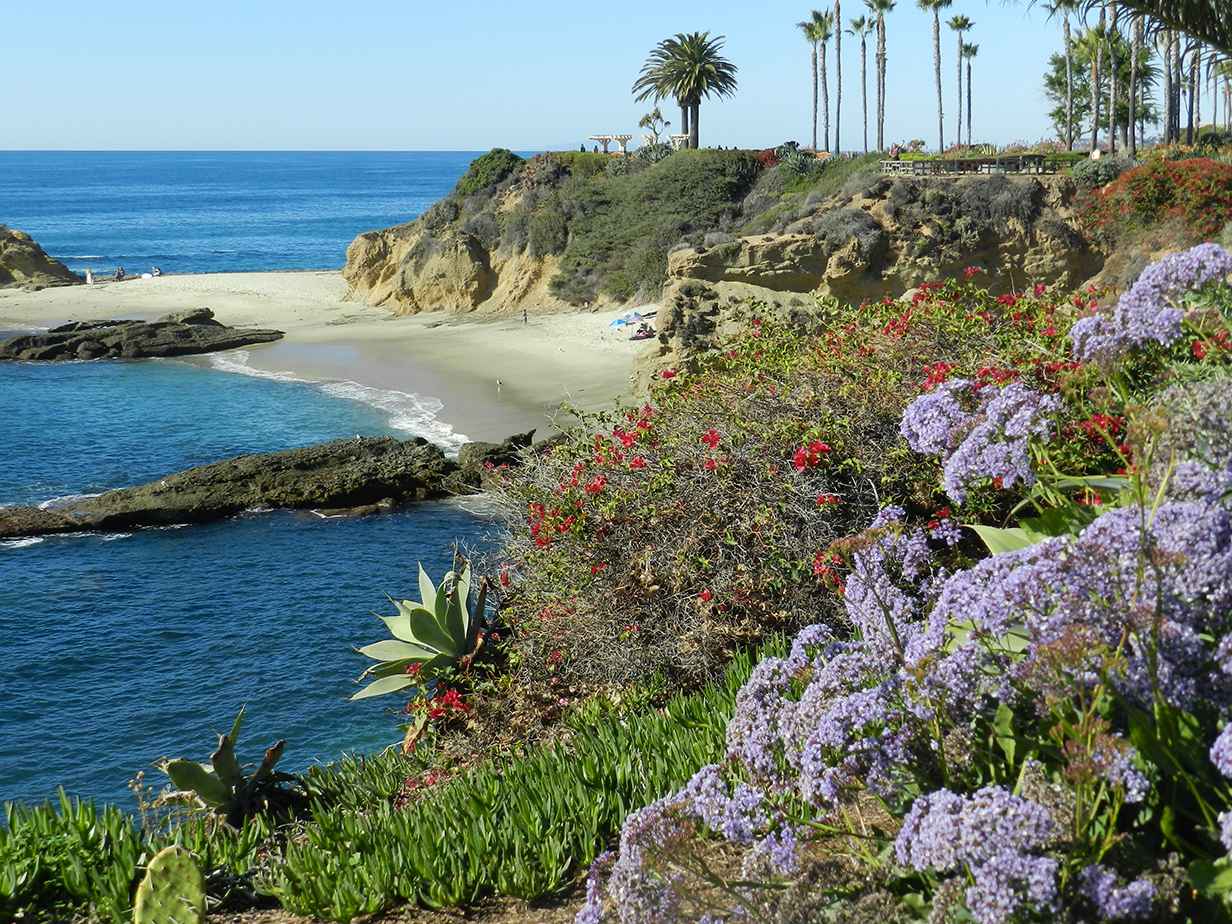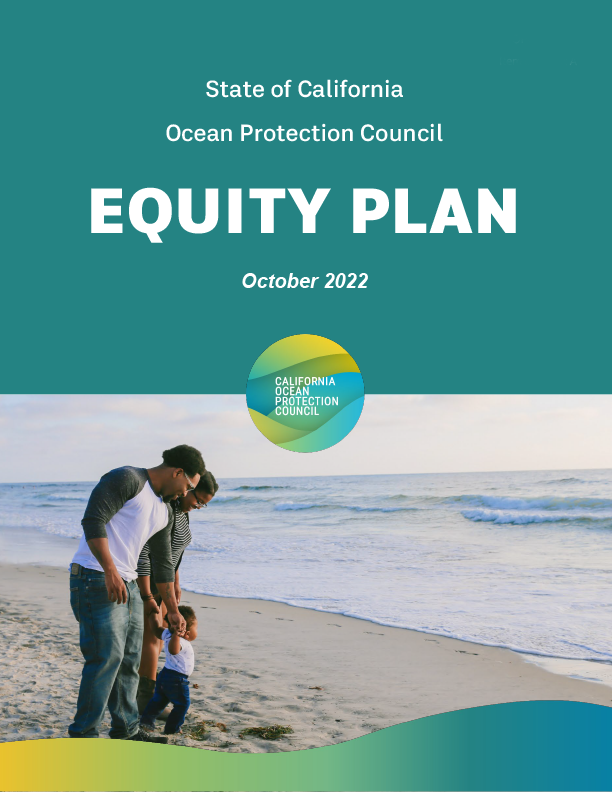Tribal Engagement
To advance Executive Order N-15-19, which provides a formal acknowledgment and apology for the State of California’s historic wrongs and commitment to truth and healing between tribes and state government, as well as Governor Newsom’s Statement of Administration Policy on Native American Ancestral Lands, OPC is committed to ensuring that tribes are meaningfully included in all aspects of our work.
Tribal Engagement Strategy and Consultation
OPC Tribal Engagement Strategy
At the January 2023 Council meeting, OPC adopted a first-of-its-kind Tribal Engagement Strategy, which serves as a framework for enhanced communication and partnership between OPC and California Native American tribes on ocean and coastal issues. Directly advancing Objective 2.1 of OPC’s Strategic Plan, “Enhance engagement with tribes,” the Tribal Engagement Strategy was crafted in close collaboration with tribes, including multiple rounds of consultations and listening sessions.
The Strategy provides specific actions that OPC will undertake to enhance tribal engagement in all aspects of its work. These actions are based on feedback received from tribes regarding their most significant priorities for coastal and ocean conservation and management.
Tribal Priorities for the Coast and Ocean:
- Implementation of Governor Newsom’s policy statement on Native American ancestral lands, including support for ancestral land return
- Development of meaningful co-management agreements
- Support for existing tribal programs and collaborative development of new research and monitoring projects in support of tribal priorities
- Restoration of culturally important habitats and species
- Improving tribal access to the coast and ocean
- Supporting tribal customary use of coastal and ocean resources
Tribal Consultation
OPC is committed to early, frequent, and meaningful consultation with California Native American tribes on policy initiatives, funding opportunities, or other projects that may affect tribes. Requests for consultation will be distributed confidentially to tribes via both email and regular mail as opportunities become available. Please contact OPC’s Tribal Liaison, Michael Esgro, at Michael.Esgro@resources.ca.gov to schedule consultation.
Supporting Tribal Stewardship: Highlights
Tribal Marine Stewards Network
In 2020, OPC invested $1 million to establish the Tribal Marine Stewards Network (TMSN) pilot program. Four partner tribes participated in the pilot: Tolowa Dee-ni’ Nation, Resighini Rancheria, Kashia Band of Pomo Indians, and the Amah Mutsun Tribal Band. At its October 6 meeting, OPC invested an additional $3.6 million to continue and expand the TMSN’s monitoring, outreach, and organizational development work, and to welcome a fifth tribe, the Santa Ynez Band of Chumash Indians, into the Network.
TMSN has broken new ground in returning stewardship and management of ocean and coastal territories to California Native American tribes. Partner tribes have initiated:
- On-the-ground monitoring work that is helping both tribes and state agencies better understand the climate vulnerability of natural and cultural resources.
- New community engagement programs that are reconnecting tribal youth with traditional stewardship practices and enhancing tribal access to the coast and ocean.
- Strategic planning and organizational development that will make the Tribal Marine Stewards Network a sustainable and enduring program into the future.
The TMSN is a flagship example of how the state can support tribes in building ecological, community, and cultural resilience, an important step toward righting historic injustices.
Wiyot Tribe Acquisition of Coastal Land
In August 2022, OPC and California Natural Resources Agency leadership joined the Wiyot Tribe and its partners, including Cal Poly Humboldt, in a ceremony to celebrate the Tribe’s purchase of one of the last pieces of undeveloped coastal wetland and upland in their ancestral territory near the Humboldt Bay. The 46 acres, known as Mouralherwaqh or “wolf’s house,” will be preserved for its cultural significance to the Wiyot Tribe, and for ecocultural restoration, water quality protection and conservation purposes. The acquisition project was supported by OPC’s Proposition 1 funding through a targeted coastal environmental justice solicitation.
Benefits from the project are likely to accrue for generations as the Wiyot Tribe ultimately envisions Mouralherwaqh as a culturally important gathering place for tribal members and as a vital ecosystem. By protecting and restoring the coastal uplands and wetlands in the area, improving water quality, and removing invasive species, this land return also supports the state’s commitment to protect biodiversity and conserve 30% of its land and sea by 2030.
Funding Opportunities
Funding opportunities will be announced on this webpage and through our email announcements.
Tribal and Environmental Justice Small Grants: 2025-2026 WHALE TAIL® Grant Program
At the September meeting, the Ocean Protection Council approved up to $2,000,000 in funding to the California Coastal Commission for tribal and environmental justice small grants through the 2025-26 WHALE TAIL® Competitive Grants Program.
The application period for the 2025-2026 grant cycle is now open!
Application Deadline: Monday, December 15, 2025 by 8:00 p.m.
WHALE TAIL® Grants fund projects that connect people to the California coast and its watersheds through education, stewardship, and outdoor experiences. Projects can engage people of any age and can take place anywhere in California.
To apply and learn more about this funding opportunity, visit the WHALE TAIL® Grants Website.
Application Walk-Through
Coastal Commission staff will hold a Zoom meeting on Thursday, November 6, 2025, 3:30 p.m to 5:00 p.m., with a detailed walk-through of the grant application and guidelines, including time for general questions about the grant and application process. Register for the Zoom meeting.
Funding for this grant cycle comes from OPC’s California Climate Investments.

Related Program Updates
OPC Equity Plan
OPC’s Equity Plan is a complementary document to the Tribal Engagement Strategy. While the Tribal Engagement Strategy is specifically focused on government-to-government relationships with California Native American tribes, the Equity Plan includes and addresses recommendations to support tribal governments and communities outside of the government-to-government consultation and engagement context.
View the Equity & Environmental Justice webpage for more information.
Staff Contact

Michael Esgro
Senior Biodiversity Program
Manager & Tribal Liaison
Michael.Esgro@resources.ca.gov


